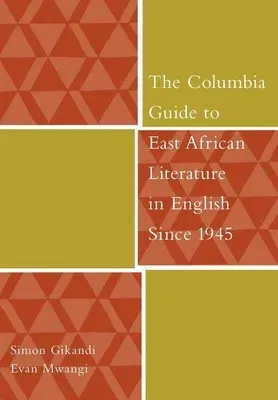The Columbia Guide to East African Literature in English Since 1945
challenges the conventional belief that the English-language literary
traditions of East Africa are restricted to the former British colonies
of Kenya, Uganda, and Tanzania. Instead, these traditions stretch far
into such neighboring countries as Somalia and Ethiopia.
Simon Gikandi and Evan Mwangi assemble a truly inclusive list of major
writers and trends. They begin with a chronology of key historical
events and an overview of the emergence and transformation of literary
culture in the region. Then they provide an alphabetical list of major
writers and brief descriptions of their concerns and achievements.
Some of the writers discussed include the Kenyan novelists Grace Ogot
and Ngugi wa Thiong'o, Ugandan poet and essayist Taban Lo Liyong,
Ethiopian playwright and poet Tsegaye Gabre-Medhin, Tanzanian novelist
and diplomat Peter Palangyo, Ethiopian novelist Berhane Mariam
Sahle-Sellassie, and the novelist M. G. Vassanji, who portrays the
Indian diaspora in Africa, Europe, and North America.
Separate entries within this list describe thematic concerns, such as
colonialism, decolonization, the black aesthetic, and the language
question; the growth of genres like autobiography and popular
literature; important movements like cultural nationalism and feminism;
and the impact of major forces such as AIDS/HIV, Christian missions, and
urbanization.
Comprehensive and richly detailed, this guide offers a fresh perspective
on the role of East Africa in the development of African and world
literature in English and a new understanding of the historical,
cultural, and geopolitical boundaries of the region.

